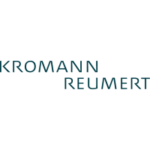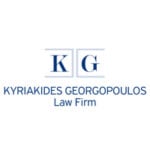-
Climate – the law governing operations that emit Greenhouse Gases (e.g. carbon trading) is addressed by Environment and Climate Change international guides, in respect of ESG: a. Is there any statutory duty to implement net zero business strategies; b. Is the use of carbon offsets to meet net zero or carbon neutral commitments regulated; c. Have there been any test cases brought against companies for undeliverable net zero strategies; d. Have there been any test cases brought against companies for their proportionate contribution to global levels of greenhouse gases (GHGs)?
a. Is there any statutory duty to implement net zero business strategies?
In line with the European Climate Law, the necessity to reach net zero emissions in Portugal has been established in the Climate Framework Law (Law no. 98/2021) as an obligation to be complied with until 2050 by the State. Under the same law, the Government is even bound to promote the development of studies to assess the possibility to reach net zero emissions by 2045. Nonetheless, currently, there is no statutory legal obligation in Portugal for companies to implement net zero business strategies.
Despite of that, the role of companies to reach net zero emissions is recognized in the Climate Framework Law, as private entities are considered relevant actors in climate action, and the right to climate balance, as a right of defence against the impacts of climate change, obliges, equally, public, and private entities.
Although the roadmap for carbon neutrality 2050 submitted by Portugal to the United Nations highlights the role played by companies in reaching this target, it does not impose obligations, nor does it contain recommendations, on the implementation of net zero business strategies.
Moreover, Portugal has developed public policies to support the transition to a low-carbon economy, such as the National Energy and Climate Plan 2030. This Plan aims to reduce greenhouse gas emissions by 55% by 2030, having by reference the registered emissions in 2005, and achieve climate neutrality by 2050. Additionally, there are sectorial binding targets for emissions reduction.
So, although there is no statutory legal obligation in Portugal for companies to implement net zero carbon strategies, there is a regulatory environment that encourages the transition to a sustainable economy, which can lead to greater awareness and voluntary adoption of sustainable business practices by companies.
The first set of European Sustainability Reporting Standards (Delegated Regulation (EU) 2023/2772), specifying the information that companies shall be required to disclose regarding environmental, social and governance matters within the framework of the Corporate Sustainability Reporting Directive (Directive (EU) 2022/2464, known as “CSRD”), was adopted in December 2023. These norms stipulate that, under the CSRD, companies must report on the material impacts, risks and opportunities resulting from their activities, namely, in relation to greenhouse gases emissions, as provided under ESRS E1-6. The transposition of the Directive was originally slated for completion by 6 July 2024, however, the national transposition is not expected to be concluded before the finalization of the European legislative procedure concerning the EU’s Omnibus ESG package, as proposed by the European Commission. The objective of the EU’s Omnibus ESG package is to streamline the overlapping obligations stipulated by the Corporate Sustainability Reporting Directive (Directive (EU) 2022/2464, known as “ CSRD”), the Corporate Sustainability Due Diligence Directive (Directive (EU) 2024/1760, known as “CSDDD”), and the EU Taxonomy Regulation (Regulation (EU) 2020/852).
Nevertheless, the present ESG framework already promotes a robust ecosystem to drive change, even in light of future adjustments for clarification and simplification.
b. Is the use of carbon offsets to mee0t net zero or carbon neutral commitments regulated?
In Portugal the framework for the Voluntary Carbon Market was enacted through the Decree-Law no. 4/2024. This Decree-Law regulates the creation and establishment of a regulated voluntary carbon market embracing two types of projects as a way of offsetting carbon emissions: carbon emissions reductions and carbon removal projects. The new legal framework institutes the qualification criteria, the types of carbon credits and condition for its generation, monitoring, reporting and verification obligation, and sets up the framework for a platform for carbon credits registration and trading.
In parallel, the European Union has adopted Regulation (EU) 2024/3012, which establishes a Union-wide certification framework for permanent carbon removals, carbon farming, and carbon storage in products. This regulation, effective from December 2024, aims to promote voluntary, high-quality carbon removal activities within the Union, ensuring transparency and traceability through a unified EU certification and registry of carbon credits. This can increase the possibility for further investments towards carbon removal activities and increased deployment.
The scope of application of the Portuguese Voluntary Carbon Market Decree-Law is therefore broader than the scope of the proposed EU Regulation on the certification of carbon credit removals.
c. Have there been any test cases brought against companies for undeliverable net zero strategies?
Until this date, there are no test cases brought against companies for undeliverable net zero strategies.
d. Have there been any test cases brought against companies for their proportionate contribution to global levels of greenhouse gases (GHGs)?
Until this date, there are no test cases brought against companies for their proportionate contribution to global levels of greenhouse gases (GHGs).
-
Biodiversity – are new projects required to demonstrate biodiversity net gain to receive development consent?
In Portugal, there is no legal requirement for projects to demonstrate biodiversity net gain to receive development consent. However, it is important to emphasise that biodiversity conservation is an important environmental topic in Portugal.
Under the Portuguese Law, certain projects are required to carry out an Environmental Impact Assessment (EIA) before their approval, as established under Decree-Law no. 151-B/2013 to evaluate the environmental impact of such projects. One of the objectives of the EIA is to identify, describe, and analyse the possible significant environmental impacts that a project, directly or indirectly, may have on biodiversity. Nonetheless, the requirements of the EIA procedure do not expressly require that projects have a biodiversity net gain, as the EIA’s main aim is to ensure that these projects do not seriously hinder biodiversity.
Some companies and organisations have adopted voluntary practices in this regard, for instance, the implementation of environmental and biodiversity management plans in their activities, including actions to recover degraded areas and compensate for environmental impacts.
The recent Decree-Law no. 4/2024 establishing the Voluntary Carbon Market, includes also a specific type of carbon credits, identified in the registry as “Carbon Credit +”, for projects which, in addition to carbon sequestration, incorporate significant additional benefits in terms of biodiversity and natural capital, provided that there is a methodology for determining and monitoring that benefit. Also, whenever applicable and scientifically feasible, methodologies should include approaches that make it possible to associate carbon projects with the added value of environmental co-benefits, namely the promotion of biodiversity.
It should also be noted that Portugal, as a member of European Union, implements EU environment legislation. The UE Regulation on Deforestation-free products (EUDR) and the European Nature Restoration Law are both legal regimes that aim to protect nature and biodiversity
In conclusion, although there is not yet a consolidated legal requirement to demonstrate the net gain of biodiversity when obtaining consent for development projects, the topic has been gaining increasing relevance.
-
Water – are companies required to report on water usage?
Pursuant to the Portuguese Legal Framework on Use of Water Resources (Decree-Law no. 226-A/2007), companies are required to obtain authorisations, licences or concessions (TURH – “títulos de utilização de recursos hídricos”) for specific types of use of water, such as the investigation and construction for the capture of groundwater belonging to the public domain, the rejection of industrial wastewater or the occupation of the public hydric domain. To this end, after submitting the necessary information to obtain these titles, companies are required to update this information whenever necessary.
As regards the regular use of water, for companies’ own consumption while performing their normal activities, there are no reporting obligations in this respect. However, when a company is the manager of a private water supply system for human consumption, apart from the abovementioned permitting requirements, monitoring obligations are also applicable, in accordance with Decree-Law no. 69/2023, to ensure the quality of water destined for human consumption. When this is the case, monitoring results must also be reported annually to the competent environmental and water and waste authorities, and, in case of non-fulfilment of the values and criteria laid down in Decree-Law no. 69/2023, that must also be communicated to the health authority and to the water sector regulator (ERSAR).
While there are no obligations under the CSRD, the Portuguese Securities Market Commission provides a model for the report of non-financial demonstration on sustainable matters, required for certain listed companies and financial sector entities, which includes a reference to the report on water consumption. While it is optional to follow this model, and the requirements applicable to the reporting of non-financial demonstration on sustainable matters do not specifically oblige to the report on water consumption, this report is, nevertheless, advisable within this context.
In turn, companies which are not obliged to the submission of a non-financial demonstration on sustainability matters may choose to report on water consumption on their sustainability reports, but this disclosure is completely optional.
It must, however, be noted that more demanding sustainability reporting duties might be established, following the adoption of the legal instrument that will transpose the CSRD into the Portuguese legal order, which will result in an, at least indirect, responsibility to report on water consumption. The first set of European Sustainability Reporting Standards (Delegated Regulation (EU) 2023/2772), specifying the information that companies shall be required to disclose with regards to environmental, social and governance matters within the framework of the CSRD, was adopted in December 2023. These norms stipulate that, under the CSRD, companies must report on the material impacts, risks and opportunities resulting from their activities, namely, in relation to pollution of air, water and soil, according to ESRS E2-4, as well as water consumption, according to ESRS E3-4.
The transposition of the Directive was originally slated for completion by 6 July 2024; however, the national transposition is not expected to be concluded before the finalization of the European legislative procedure concerning the EU’s Omnibus ESG package, as proposed by the European Commission.
-
Forever chemicals – have there been any test cases brought against companies for product liability or pollution of the environment related to forever chemicals such as Perfluoroalkyl and Polyfluoroalkyl Substances (PFAS)?
As part of the European Union, Portugal will be subject to the announced European ban on all perfluoroalkyl and polyfluoroalkyl substances, which is under preparation by the European Chemicals Agency (ECHA), within the framework of the REACH Regulation (Regulation (EC) no. 1907/2006, on the registration, evaluation, authorisation, and restriction of chemicals). Likewise, Portugal does not have any specific legislation currently in force relating to these matters.
Although it was disclosed, in 2023, that there are nine points of contamination of PFAS in Portugal, up to this date there are no known test cases brought against companies for product liability or pollution of the environment related to forever chemicals.
-
Circularity – a. The law governing the waste hierarchy is addressed by the Environment international guide, in respect of ESG are any duties placed on producers, distributors or retailers of products to ensure levels of recycling and / or incorporate a proportionate amount of recycled materials in product construction? b. Are any duties placed on producers, distributors or retailers of products to handle the end-of-life of the products placed on the market?
a. The law governing the waste hierarchy is addressed by the Environment international guide, in respect of ESG are any duties placed on producers, distributors or retailers of products to ensure levels of recycling and / or incorporate a proportionate amount of recycled materials in product construction?
Circularity takes a central place in waste hierarchy, which is internationally recognised as a guiding principle for sustainable waste management. In the Portuguese legal framework, waste management is ruled by the General Waste Management Legal Framework (Decree-Law no. 102-D/2020) and the Unified Legal Framework for Specific Waste Streams (Decree-Law no. 152-D/2017), which have just been amended by Decree-Law no. 24/2024.
Both these instruments impose recycling and recovery targets on companies responsible for waste management, as well as on producers which, under the legislation on specific waste streams, are covered by the extended producer responsibility principle (which obliges producers of certain products to manage the product throughout its entire lifecycle, including production, use and end of life). For instance, under the General Waste Management Legal Framework, companies responsible for waste management must ensure that a minimum increase to 70% (in comparison with 2020) in weight of waste stemming from construction and demolitions is prepared for reuse, recycling, and other forms of material recovery.
As for obligations imposed on producers, the incorporation of recycled materials in product conception constitutes one of the guiding principles of waste management and, with this in view, the General Waste Management Legal Framework foresees that the placement on the market of certain products and materials may be subject to compliance with a minimum rate of incorporation of recycled material. Nevertheless, to this date, under this general framework, it is only mandatory to use at least 10% of recycled materials, or materials incorporating recycled materials, in the construction and maintenance of infrastructures under the Public Procurement Code.
In turn Unified Legal Framework for Specific Waste Streams, which introduces the principle of extended producer responsibility with respect to certain categories of products and waste (such as packages, used oils, electric and electronic equipment, batteries and accumulators, tires, among others), establishes, for each of these categories, specific minimum targets and criteria that must be met by companies with regards products’ recyclability, as well as recovery, preparation for reuse, and valorization.
It should also be noted that the recently approved amendment to the specific waste streams legislation (Decree-Law no. 24/2024) added two new categories of products and waste to the specific waste streams covered by the extended producer responsibility within this framework, namely, those of (i) furniture placed on the market, mattresses and their respective waste, and (ii) products and waste from medical self-care at home (which include, namely, needles, lancets, syringes, bloody pads, and self-diagnosis, monitoring or medication administration equipment).
b. Are any duties placed on producers, distributors or retailers of products to handle the end-of-life of the products placed on the market?
In Portugal, obligations are imposed on producers, distributors, and retailers concerning the end-of-life management of products placed on the market, primarily through extended producer responsibility schemes. These obligations are designed to ensure that products are responsibly managed when they reach the end of their life cycle, with an emphasis on reducing waste and promoting recycling.
General Waste Management Legal Framework (Decree-Law no. 102-D/2020) establishes that the producer of the product should be encouraged to promote changes in its design in order to result in less waste in its production and subsequent use, to allow the reuse and recycling of the products and to ensure that the treatment of the resulting waste is carried out in accordance with the principles of the protection of human health and the environment and the waste hierarchy.
Legislation concerning specific waste streams, as outlined in Decree-Law No. 152-D/2017, as amended, which approves the Unified Legal Framework for Specific Waste Streams, is based on the principle of extended producer responsibility. The entity responsible for the initial placement of packaged products on the national market is also responsible for their management when they reach the end of their life cycle. This responsibility can be assumed individually or transferred to an integrated system. In this context, the entity responsible for placement on the domestic market will be the packer or importer, as applicable. In the case of service packaging, this responsibility falls on the supplier or importer, as applicable.
It should be noted that packers who use reusable packaging are obliged to manage, either individually or collectively, the packaging they place on the market and its waste through a packaging reuse system (SDR).
SDR management entities are legal persons governed by private law and must consist of packers. Their obligations include, but are not limited to: (i) ensuring the provision of a network of collection points that is universal, adequate, and accessible to end consumers; (ii) encouraging the use of automatic and compressed collection solutions to enhance system efficiency and mitigate fraud risks; and (iii) monitoring the SDR, particularly with regard to the packaging placed on the market by material, the flow of the respective waste, the materials resulting from its treatment, and the performance of the system’s actors.
Finally, it should be mentioned that the European Union has approved Regulation (EU) 2025/40 of 19 December 2024 on packaging and packaging waste, which will come into force in August 12, 2026. This regulation includes additional requirements regarding packaging that will also be applicable in Portugal. A general principle of this regulation is that all packaging placed on the market must be recyclable.
-
Plastics – what laws are in place to deter and punish plastic pollution (e.g. producer responsibility, plastic tax or bans on certain plastic uses)?
Plastic products and waste in Portugal are regulated within the Unified Legal Framework on Specific Waste Streams, as part of the system for extended producer responsibility as regards packages and packaging waste. As such, the law subjects these product categories to certain recycling objectives and targets, namely, that, by the end of 2025, 65% of the weight of all packaging waste (including plastic) must be recycled, as well as that at least 50% of the weight of the plastic components of all packages must be recycled.
Moreover, special measures for certain types of plastic products have been implemented, such as:
- Payment of a fee for the use of plastic bags (under the Unified Legal Framework for Specific Waste Streams);
- Implementation of a system for deposit and refund for non-reusable beverage packaging, imposing on packagers, namely, the obligation to ensure that, by the end of 2026, 70% (in weight) of non-reusable beverage packaging placed on the market are collected for recycling under this system (under the Unified Legal Framework for Specific Waste Streams, as amended by Decree-Law no. 24/2024);
- Reporting obligations on producers to communicate to the environmental authority the estimated amount of plastic bags to be placed on the market each year (under the Unified Legal Framework for Specific Waste Streams, as amended by Decree-Law no. 24/2024);
- Prohibition of placement in the market of certain single-use plastic products and any oxo-degradable (under Decree-Law no. 78/2021, as amended by Decree-Law no. 83/2022, both of which transpose Directive (EU) 2019/904 on the reduction of the impact of certain plastic products on the environment);
- Obligation to offer reusable alternatives for plastic packaging (under Decree-Law no. 78/2021);
- Extended producer responsibility for certain single use plastic products (under Decree-Law no. 78/2021, as amended by Decree-Law no. 83/2022);
- Prohibition applicable to commercial establishments to make ultra-light plastic bags available for primary packaging or transport of bread, fruit and vegetables that are not 100% biodegradable, biologic, or renewable (under Decree-Law no. 77/2019);
- Prohibition applicable to commercial establishments to sell bread, fruit and vegetables enclosed in plastic disposable containers that are not biodegradable, biologic, or renewable (under Decree-Law no. 77/2019);
- Prohibition applicable to activities in the restaurant, beverage sector and in retail trade to use and make available single use plastic cutlery (under Decree-Law no. 76/2019);
- Application of a special tax contribution on light and very light plastics (under the current annual State Budget Law, Law no. 82/2023);
- Application of a special tax contribution on single use plastic or aluminium packages, used for ready-to-eat meals (under Ordinance no. 331-E/2021, as amended by Ordinance no. 270/2023).
Non-compliance with the aforementioned obligations may, in some cases, be considered an environmental misdemeanour (either light or serious) and consequently lead to fines ranging between EUR 2.000 to EUR 216.000 depending on their gravity and the nature of the behaviour as negligent or wilful.
-
Equality Diversity and Inclusion (EDI) – what legal obligations are placed on an employer to ensure equality, diversity and inclusion in the workplace?
Employees (and job applicants) are protected against discrimination in all aspects of the employment contract, from the recruitment process to training, promotion and working conditions, including salary, and termination of employment, on the grounds of protected characteristics prescribed by the Labour Code, namely, age, gender, sexual orientation, education, reduced capacity to work, chronic illness, nationality, language, religion, trade union membership, among others.
There is a set of legal obligations in place for employers to ensure EDI, such as:
- Implementation of a code of good conduct to prevent and combat harassment at work for employers with seven or more employees;
- Obligation to trigger disciplinary proceedings whenever it becomes aware of alleged situations of harassment at work;
- Obligation for companies to implement reporting channels and procedures and that prohibits any retaliation against whistleblowers (Whistleblowing directive, introduced in Portugal by Law no. 93/2021);
- Increased protection against dismissal for pregnant, postpartum or lactating employees and employees on parental leave;
- Posting of information on the employees’ rights and duties in terms of equality and non-discrimination in the workplace.
- Measures should be taken to ensure equal pay for women and men for work of equal value, opportunities, and working conditions; (Law No. 60/2018). Companies must have a transparent remuneration policy, based on the evaluation of job components and objective criteria.
- Employers are encouraged to adopt clear internal policies, provide training, and regularly review practices to ensure compliance with these legal obligations.
In addition, there is also national legislation that imposes positive action measures in terms of diversity (creation of quotas for the under-represented gender in the top bodies of public and private organisations – Law no. 62/2017) and inclusion (the creation of quotas for the integration of people with disabilities – Law no. 4/2019).
-
Workplace welfare – the law governing health and safety at work is addressed in the Health and Safety international guide, in respect of ESG are there any legal duties on employers to treat employees fairly and with respect?
Portuguese labour legislation foresees that employers must respect and treat employees with courtesy and probity, refraining from any acts that may affect the employee’s dignity, that are discriminatory, harmful, intimidating, hostile or humiliating to the employee, namely harassment.
Furthermore, employers must provide good physical and moral working conditions, that must be equal to all employees.
-
Living wage – the law governing employment rights is addressed in the Employment and Labour international guide, in respect of ESG is there a legal requirement to pay a wage that is high enough to maintain a normal standard of living?
Employers are required to pay a salary that must be fair and appropriate to the work provided by employees. In addition, employees are guaranteed a national minimum monthly salary, the value of which is determined annually by the Government, which considers the employees’ needs, the rise in the cost of living, and productivity trends, in order to ensure a decent living.
-
Human rights in the supply chain – in relation to adverse impact on human rights or the environment in the supply chain: a. Are there any statutory duties to perform due diligence; b. Have there been any test cases brought against companies?
a. Are there any statutory duties to perform due diligence?
In Portugal, human rights violations such as human trafficking or modern-day slavery are primarily criminal offenses for which companies can be sanctioned under the Penal Code and may also lead to labour law violations.
Additionally, in July 2024, the European legislator established specific rules for corporate human rights and environmental due diligence through the publication of the CSDDD. This Directive will require in-scope companies to conduct human rights and environmental due diligence by, among others, integrating it into their policies, identifying actual or potential adverse impacts, preventing and mitigating potential adverse impacts, providing remediation for actual impacts, carrying out meaningful engagement with stakeholders and publicly communicating on due diligence.
After transposition by the Member States, currently to be completed by July 2026, the CSDDD will progressively apply to EU and non-EU companies with over 1000 employees and a turnover of more than 450 million euros in the EU, as well as to franchises with a turnover of more than 80 million provided that at least 22.5 million was generated by royalties in the EU.
In-scope companies will be required to conduct human rights and environmental due diligence, not only within their operations and those of their subsidiaries, but also in the operations of the business partners in their chain of activities, including upstream commercial partners and the downstream commercial partners involved in the distribution, transportation and storage of the product. Given the CSDDD’s chain of activities approach, it is expected to significantly impact the SMEs included in the chain of activities of in-scope companies as contractors or subcontractors.
Furthermore, in the specific case of companies wishing to be Taxonomy-aligned, the Taxonomy Regulation determines the need to comply with the Minimum Safeguards. This includes implementing due diligence procedures to ensure the alignment with the OECD Guidelines for Multinational Enterprises and the UN Guiding Principles on Business and Human Rights, which shall necessarily consider human rights violations within the supply chain.
Moreover, it should be noted that, at the time of writing this article, the European co-legislators are discussing the Omnibus ESG package which will result in the revision of the CSDDD and the CSRD. The Omnibus ESG package will limit the scope of the due diligence provided for in CSDDD to direct business partners, will limit the volume and type of information to request from SMEs included in the chain of activities, and will also include a “stop the clock mechanism”, postponing to 2028 the transposition deadline and the first application wave of the CSDDD.
Additionally, Regulation (EU) 2024/3015 (“Forced Labour Regulation”) that will be applicable to all companies operating in or into the European market as from December 2027, imposes due diligence duties to economic operators so as to ensure that the risk of forced labour cases in their operations and supply chains have been appropriately mitigated or eliminated. This Regulation does not introduce any new due diligence requirements over and above what is already required under EU (such as the CSDDD) or national legislation, but rather defer execution of the due diligence to such legal provisions.
b. Have there been any test cases brought against companies?
Considering that the CSDDD will only be applicable after 2027 and that, as of today, there are no other specific obligations regarding the exercise of due diligence, we are not aware of any cases against companies for human rights violations in their respective value chains.
However, albeit there are no specific mentions concerning human rights in supply chains brought against companies in Portugal, there are several court decisions referring various legal issues, including corporate liability, international jurisdiction, and human rights violations in other contexts, but none explicitly address the topic of human rights in supply chains.
-
Responsibility for host communities, environment and indigenous populations – in relation to adverse impact on human rights or the environment in host communities: a. Are there any statutory duties to perform due diligence; b. Have there been any test cases brought against companies?
a. Are there any statutory duties to perform due diligence?
Adverse impacts on human rights or the environment in host communities are subject to the legal framework referred to in question 10.a.
As mentioned in question 10.a., when the CSDDD is transposed and the Forced Labour Regulation enters into force, in-scope companies will be required to conduct risk-based human rights and environmental due diligence. This includes carrying out meaningful engagement with affected stakeholders, such as communities or entities whose rights or interests are affected by the company’s products, services or operations.
Similarly, the remediation of actual negative impacts provided for in the CSDDD also aims to restore affected communities to a situation equivalent to, or as close as possible to, the situation they would have been in if the adverse impact had not occurred.
Therefore, in conducting the risk-based human rights and environment due diligence, companies will necessarily consider potentially affected groups or communities.
As also mentioned in 10.a, in the specific case of companies wishing to be Taxonomy-aligned, the Taxonomy Regulation determines the need to comply with the minimum safeguards and, therefore, to implement due diligence procedures to ensure the alignment with the OECD Guidelines for Multinational Enterprises and the UN Guiding Principles on Business and Human Rights. Such procedures shall consider human rights violations in host communities.
b. Have there been any test cases brought against companies?
There are no visible cases brought against companies for human rights violations in host communities. There are, however, some legal cases and criminal investigations brought against Portuguese companies for human rights violations such as modern-day slavery and women trafficking for sexual exploitation.
-
Have the Advertising authorities required any businesses to remove adverts for unsubstantiated sustainability claims?
There are no new cases requiring any businesses to remove adverts for unsubstantiated sustainability claims.
-
Have the Competition and Markets authorities taken action, fined or prosecuted any businesses for unsubstantiated sustainability claims relating to products or services?
There are no new cases in which businesses have been fined or prosecuted for unsubstantiated sustainability claims relating to products or services.
-
Have there been any test cases brought against businesses for unsubstantiated enterprise wide sustainability commitments?
There are no test cases brought against businesses for unsubstantiated enterprise wide sustainability commitments.
-
Is there a statutory duty on directors to oversee environmental and social impacts?
In Portugal, the Climate Framework Law provides that the duties of care, loyalty, and reporting on accounting imposed on directors or members of governing bodies with supervisory functions must include the careful assessment of the risk that climate change poses to the business model, capital structure and assets of companies.
With a different perspective, the Commercial Companies Act stipulates that company managers/directors must observe duties of loyalty, in the interest of the company, considering the long-term interests of the shareholders and taking into account the interests of other parties relevant to the sustainability of the company, such as employees, customers, and creditors.
The Governance Code from IPCG (Instituto Português de Corporate Governance) – a non-mandatory “comply or explain” instrument, establishes that companies should periodically identify, measure and seek to prevent negative effects related to the environmental and social impact of the operation of its activity, in terms that are appropriate to the nature and size of the company.
Besides information disclosure duty on sustainability, listed companies are also required to have a diversity policy.
-
Have there been any test cases brought against directors for presenting misleading information on environmental and social impact?
Until this date, there are no tests cases brought against directors for presenting misleading information on environmental and social impact.
-
Are financial institutions and large or listed corporates required to report against sustainable investment criteria?
The requirements provided for in the Sustainable Finance Disclosure Regulation (Regulation (EU) 2019/2088), in the financing sector delegated acts, in the Non-Financial Reporting Directive (Directive 2014/95/EU, “NFRD”), in the Taxonomy Regulation and its delegated acts, and in the Capital Requirements Regulation (Regulation (EU) 575/2013) and its delegated acts, are applicable and establish the necessary obligations imposed on financial institutions and corporations to report against sustainable investment criteria.
The Sustainable Finance Disclosure Regulation requires financial market participants to disclose how they integrate environmental, social, and governance factors into their decision-making processes. It distinguishes between different levels of sustainability disclosures, including entity-level, product-level, and website disclosures and classifies investment products based on their sustainability objectives.
Pursuant to NFRD, listed companies, banks, and insurance companies with an average number of 500 employees on an individual or consolidated basis are obliged to report on sustainability. Such non-financial demonstrations must contain information on the evolution, performance, position, and impact of the company´s activity regarding environmental, social, and employee-related matters, equality between women and men, non-discrimination, respect for human rights, curbing corruption and money laundering. The same companies must disclose information according to the Taxonomy Regulation, a classification system that defines environmentally sustainable economic activities. It provides technical criteria for assessing whether activities contribute meaningfully to environmental objectives like climate change mitigation or adaptation. Companies and investors use these criteria to report their alignment with sustainability goals.
For Banks, the Capital Requirements Regulation requires detailed reporting on climate-related and other ESG risks. It includes not only ratios based on taxonomy of their exposures but also specific information on CO2 emissions, transition risks, physical risks and management of ESG risks.
There is presently some uncertainty about the increase in scope and increase in the extension of sustainability information as the CSRD is to be postponed and reviewed through the Omnibus ESG package
-
Is there a statutory responsibility on businesses to report on managing climate related financial risks?
In Portugal, under the Climate Framework Law, companies must consider, in their governance mechanisms, climate change risks and analyse these risks in their decisions procedures. The NFRD specifically includes reporting on climate and sustainability risk management. For banks, the Capital Requirements Regulation is very detailed in what concerns climate risk management.
-
Is there a statutory responsibility on businesses to report on energy consumption?
In Portugal, there is no statutory responsibility imposed on businesses to report on energy consumption.
The Portuguese Securities Market Commission provides a model for the report of non-financial demonstration on sustainable matters, which needs to be submitted by certain listed companies and financial sector entities. This model includes a reference to the report on energy consumption. While this model is optional, and the mandatory requirements of the report of non-financial demonstration on sustainable matters do not specifically oblige to the report on energy consumption, this report is, nevertheless, recommended within this context.
Companies not obliged to the submit of a non-financial demonstration on sustainability matters may choose to report on energy consumption on their sustainability reports, but this disclosure is not mandatory.
However, reporting duties will become more demanding with the transposition of the CSRD into the Portuguese legal order, which will result in an, at least indirect, responsibility to report on energy consumption. The first set of European Sustainability Reporting Standards, specifying the information that companies shall be required to disclose with regards to environmental, social and governance sustainability matters within the framework of the CSRD, was adopted in December 2023. Under the CSRD, companies must report on the material impacts, risks and opportunities resulting from their activities, namely, in relation to energy consumption, according to the ESRS E1-5 – Energy consumption and mix, and also, indirectly, in relation to gross scope 2 greenhouse gases emissions, i.e., indirect emissions from the generation of purchased or acquired electricity, steam, heat, or cooling consumed by the undertaking, pursuant to ESRS E1-6 – Gross Scopes 1, 2, 3 and Total GHG emissions. Therefore, CSRD in-scope companies will have to disclose information on energy consumption.
The transposition of the Directive was originally slated for completion by 6 July 2024 however, the national transposition is not expected to be concluded before the finalization of the European legislative procedure concerning the EU’s Omnibus ESG package, as proposed by the European Commission.
-
Is there a statutory responsibility on businesses to report on EDI and / or gender pay gaps?
Yes, there is a responsibility on businesses to report on gender pay gaps. Companies are required to submit an annual social report (Relatório Único) on their activities, which includes information on several topics, including the salaries of their employees.
Based on this information, the Working Conditions Authority (ACT) is responsible for compiling and making available statistical information on the existent pay gap between women and men, which then shall proceed to notify the employers to submit a plan for evaluating such pay gap.
Employers must also ensure that they have a transparent remuneration policy.
These measures to promote equal pay for women and men for work of equal value were established by Law No. 60/2018.
Additionally, companies subject to the CSRD must, where relevant, include information on the gender pay gap when disclosing details about their own workforce.
-
Is there a statutory responsibility to report on modern day slavery in the supply chain?
As highlighted in question 10.a, modern-day slavery is primarily a criminal offense for which companies can be sanctioned under the Penal Code and may also amount to a labour law violation. Therefore, we believe that the responsibility to report on modern-day slavery in the supply chain can be considered part of the fundamental duties of board members, as outlined in the Commercial Companies Act. Furthermore, such duty may also be included in the diligent and reasonable management of a company.
Additionally, NFRD requires Member States to ensure that certain economic operators annually publish non-financial statements, in which they report on the impact of their activity on human rights, including forced labour. This requirement was recently amended by the CSRD, which introduced detailed reporting requirements for companies falling within its scope regarding respect for human rights, including in global supply chains. The information that undertakings disclose about human rights should include, where relevant, information about forced labour in their value chains.
Moreover, as abovementioned the Forced Labour Regulation (Regulation (EU) 2024/3015, regarding the prohibition of products made with forced labour on the Union that was approved in December 2024), will apply from 14 December 2027 to all companies, all sectors of industry and all type of products which are suspected to have been manufactured with use of forced labour. The Forced Labour Regulation sets forth strict rules that oblige companies to adopt due diligence practices, ensuring that their suppliers and subcontractors do not use forced labour. The Regulation also allows any natural or legal person to submit information to the competent authorities if they consider that products made with forced labour are placed and made available on the Union market.
-
Trends and developments – Where do you see the most significant legal developments in ESG in your jurisdiction in the next 12 months? Do you expect a rise in Court disputes or enforcement actions?
It is expected that the national legal landscape in 2025 regarding ESG-related matters will be greatly influenced by the activity of the European legislator, in particular, by the final outcome from the Omnibus package, which covers a far-reaching simplification in the fields of sustainable finance reporting, sustainability due diligence, EU Taxonomy, carbon border adjustment mechanism, and European investment programs.
First and foremost, the due approval and publication of the first of the directives included in the Omnibus ESG package, the so-called “stop the clock directive,” will delay by 2 years the application of the CSRD rules to large companies and listed SMEs, and will extend the transposition deadline of the CSDDD until 2028, is expected to occur within the coming weeks/months.
Similarly, developments are also awaited in the negotiation process between the European co-legislators regarding the second directive included in the Omnibus ESG package, which will amend the content and scope of the sustainability reporting and due diligence rules provided for in the CSRD and CSDDD.
The legislative procedure for the approval of this legislative package should be completed during 2025.
Also pending approval during 2025 is the Green Claims Directive, which establishes clear and strict rules for all participants in the market and that shall influence the numbers of climate-greenwashing cases. It is expected a growing awareness of greenwashing risks also in light of the Empowering Consumer for Green Transition Directive. This directive amends both the Unfair Commercial Practices Directive and the Consumer Rights Directive to integrate considerations of environmental and social impacts. The objective is to ensure that consumers are not misled about product characteristics such as durability and repairability. Additionally, the directive mandates the rigorous enforcement of these provisions through the imposition of proportionate penalties for any infringements.
By 27 March 2026, Portugal should adopt and publish the measures necessary to comply with this Directive, to be applicable from 27 September 2026.
Additionally, by the end of December 2024, the Agency for Climate was created, in a bid to lead the climate transition considering the new reference of the Climate Framework Law and the National Energy and Climate Plan (PNEC 2030). This new Agency for Climate will be responsible for the operationalization of the Voluntary Carbon Market, which should be completed in the following year with the availability of the public platform for the registration of projects and carbon credits. Independent verifiers are already being trained by the Portuguese Energy Agency (ADENE) and a methodology for new afforestation has already been put out for public consultation to then allow the submission of the first projects to the voluntary Carbon Market.
Finally, with regard to court disputes and enforcement actions, it is worth mentioning that on 7 January of this year the Labour Authority notified over 4000 companies regarding gender pay gap; these notifications are part of the implementation of Law No. 60/2018, the aim of which is to eliminate any gender pay gap by ensuring that equal pay is available for equal work.
Additionally, the Labour Authority has also notified several companies to verify compliance with the employment quota for people with disabilities as defined in Law No 4/2019, which establishes an employment quota system for people with disabilities with a degree of disability equal to or greater than 60%.
This wave of inspections has been ongoing since 2023 and this trend seems to be enduring, and companies need to be prepared to address it. Therefore, a rise in Court disputes and enforcement actions related to these matters is to be expected.
Portugal: Environmental, Social and Governance
This country-specific Q&A provides an overview of Environmental, Social and Governance laws and regulations applicable in Portugal.
-
Climate – the law governing operations that emit Greenhouse Gases (e.g. carbon trading) is addressed by Environment and Climate Change international guides, in respect of ESG: a. Is there any statutory duty to implement net zero business strategies; b. Is the use of carbon offsets to meet net zero or carbon neutral commitments regulated; c. Have there been any test cases brought against companies for undeliverable net zero strategies; d. Have there been any test cases brought against companies for their proportionate contribution to global levels of greenhouse gases (GHGs)?
-
Biodiversity – are new projects required to demonstrate biodiversity net gain to receive development consent?
-
Water – are companies required to report on water usage?
-
Forever chemicals – have there been any test cases brought against companies for product liability or pollution of the environment related to forever chemicals such as Perfluoroalkyl and Polyfluoroalkyl Substances (PFAS)?
-
Circularity – a. The law governing the waste hierarchy is addressed by the Environment international guide, in respect of ESG are any duties placed on producers, distributors or retailers of products to ensure levels of recycling and / or incorporate a proportionate amount of recycled materials in product construction? b. Are any duties placed on producers, distributors or retailers of products to handle the end-of-life of the products placed on the market?
-
Plastics – what laws are in place to deter and punish plastic pollution (e.g. producer responsibility, plastic tax or bans on certain plastic uses)?
-
Equality Diversity and Inclusion (EDI) – what legal obligations are placed on an employer to ensure equality, diversity and inclusion in the workplace?
-
Workplace welfare – the law governing health and safety at work is addressed in the Health and Safety international guide, in respect of ESG are there any legal duties on employers to treat employees fairly and with respect?
-
Living wage – the law governing employment rights is addressed in the Employment and Labour international guide, in respect of ESG is there a legal requirement to pay a wage that is high enough to maintain a normal standard of living?
-
Human rights in the supply chain – in relation to adverse impact on human rights or the environment in the supply chain: a. Are there any statutory duties to perform due diligence; b. Have there been any test cases brought against companies?
-
Responsibility for host communities, environment and indigenous populations – in relation to adverse impact on human rights or the environment in host communities: a. Are there any statutory duties to perform due diligence; b. Have there been any test cases brought against companies?
-
Have the Advertising authorities required any businesses to remove adverts for unsubstantiated sustainability claims?
-
Have the Competition and Markets authorities taken action, fined or prosecuted any businesses for unsubstantiated sustainability claims relating to products or services?
-
Have there been any test cases brought against businesses for unsubstantiated enterprise wide sustainability commitments?
-
Is there a statutory duty on directors to oversee environmental and social impacts?
-
Have there been any test cases brought against directors for presenting misleading information on environmental and social impact?
-
Are financial institutions and large or listed corporates required to report against sustainable investment criteria?
-
Is there a statutory responsibility on businesses to report on managing climate related financial risks?
-
Is there a statutory responsibility on businesses to report on energy consumption?
-
Is there a statutory responsibility on businesses to report on EDI and / or gender pay gaps?
-
Is there a statutory responsibility to report on modern day slavery in the supply chain?
-
Trends and developments – Where do you see the most significant legal developments in ESG in your jurisdiction in the next 12 months? Do you expect a rise in Court disputes or enforcement actions?



















